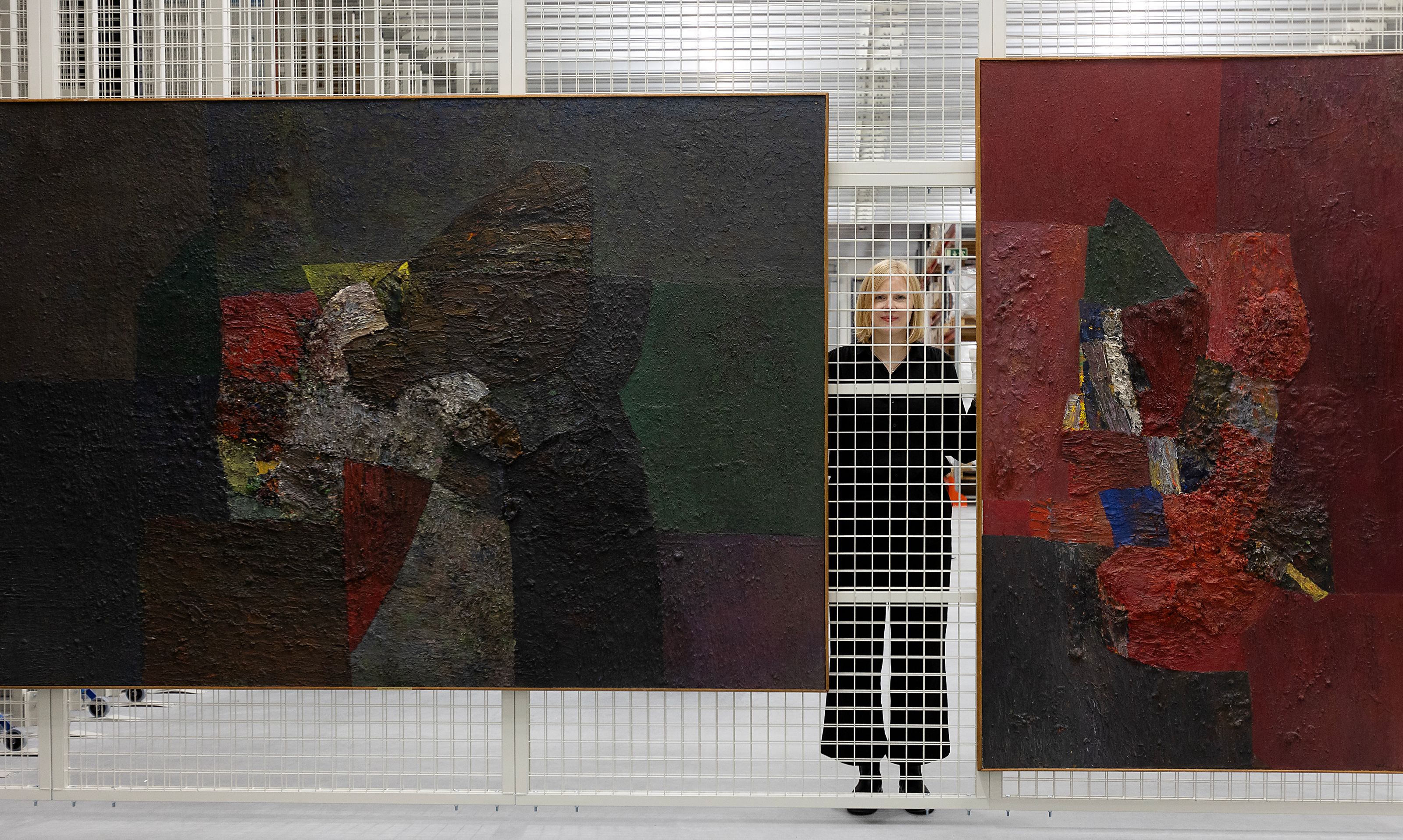It all started with this picture.
Nicolai Tangen was in his early thirties. He worked in finance in London and had accumulated the means to start indulging his interest in art.
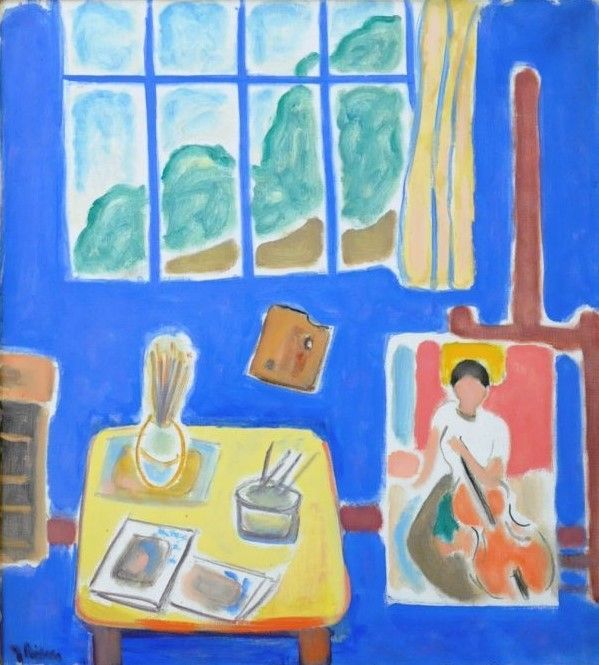
From Norwegian to Nordic
Tangen is engaged in many things. But more than anything else, he is focused on learning. This applies to his interest in art as well.
“I started reading up on Norwegian modernism. I attended exhibitions, talked with art enthusiasts and experts, and it quickly developed. My interest only grew stronger as I explored more. I became more confident in my own taste and dared to experiment. I was not so concerned with what was ‘correct’, but with what I liked and what felt right for me,” he shares.
And with increased interest came greater insight. Having initially focused on Norway, Tangen began to see the connections between the Nordic artists; how they were influenced by others and how they influenced each other.
Thus, he expanded his horizons and aimed at the Nordic countries.

It was natural to start in Denmark, where the artists were more continental than here at home.
“I was fascinated by the COBRA movement’s rejection of hard geometric art in favour of the more primitive approach. And eventually also by surrealism’s strange world of the subconscious and dreams,” he says.
One of the most prominent COBRA artists is Danish Asger Jorn.
Art historian Ellef Prestsæter, who has researched Jorn, asserts that he is central to the Tangen Collection.
“The selection of Jorn in the collection is both qualitatively and quantitatively remarkable. When I created the exhibition in Valencia, the Tangen Collection was the only one, besides Museum Jorn, represented in all sections of the exhibition. Using the Tangen Collection, one can tell a coherent story about Jorn’s oeuvre, from his early experiments in the 1930s to the 1960s,” he says.

Without Parallel
The journey then continued to Sweden, where modern art started earlier and was more sophisticated than the Norwegian. In the Tangen Collection, we find several of the doyens of Swedish art, such as Sigrid Hjertén, Otto G. Carlsund, and GAN (Gösta Adrian-Nilsson).
Finally, the focus shifted to Finnish art, about which Tangen initially knew little. Today, he is immensely proud of the Finnish selection.
“I was fortunate to meet the art historian Timo Valjakka, who introduced me to Finnish geometric art. Wow! They started late, but well. And they are still good,” he says.
Tangen artworks from all over the Nordic countries were displayed at the exhibition Påarmlängds avstånd (“At arm’s length”) at the Artipelagart museum in Stockholm in 2023. Bo Nilsson, curator, and artistic director at Artipelag, says this:
“The Norwegian collection is, of course, leading in terms of the number of artworks, but the Swedish, Finnish, and Danish collections also have a representation that is unparalleled in museum collections in the Nordic countries. Kristiansand is fortunate to display the world’s foremost collection of Nordic art in Kunstsilo.”
Among significant Norwegian artists widely represented in the collection are Anna-Eva Bergman, Gunnar S. Gundersen, Jakob Weidemann, and Aase Texmon Rygh.
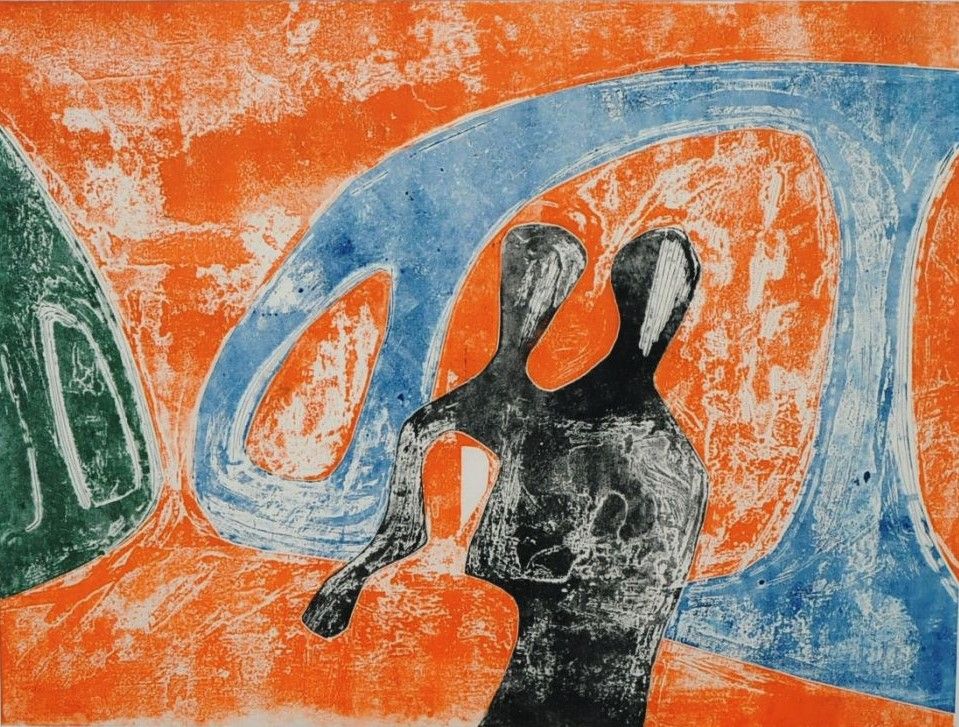
Museum Quality
The Tangen Collection does not attempt to give a complete overview of Nordic modernism but is a subjective interpretation of this period. It contains works from all the most important art movements and -isms of the time, but there are also gaps.
“It’s liberating to be able to exclude works or artistic creations that I don’t think are up to standard or simply don’t excite me,” says Tangen, who shares that Concrete Art is closest to his heart.
“It’s hard to pinpoint why, but I like the universal abstract language in Concrete Art. It doesn’t tell you what you are looking at, or are meant to understand, but instead challenges you to think and feel,” he explains.
All works purchased for the collection must be of museum quality. Tangen has achieved this by associating with some of the best art historians in the Nordic countries as his advisors, such as Steinar Gjessing, Timo Valjakka, and Bosse Nilsson.
Together, they have over the years found works of art from several strong artists who were almost forgotten, for example, Danish Rita Kernn-Larsen, who was an early pioneer in surrealism.
And Tangen began early to focus on purchasing works by female artists.
“We have been committed to identifying talented female artists and buying important works by them. This is primarily because they create great art, but also because we have actively wanted to improve the gender balance in the collection. It cannot be denied that modernism was to some extent a project for male artists, and therefore it is important to highlight the women who deserve recognition,” says Tangen.
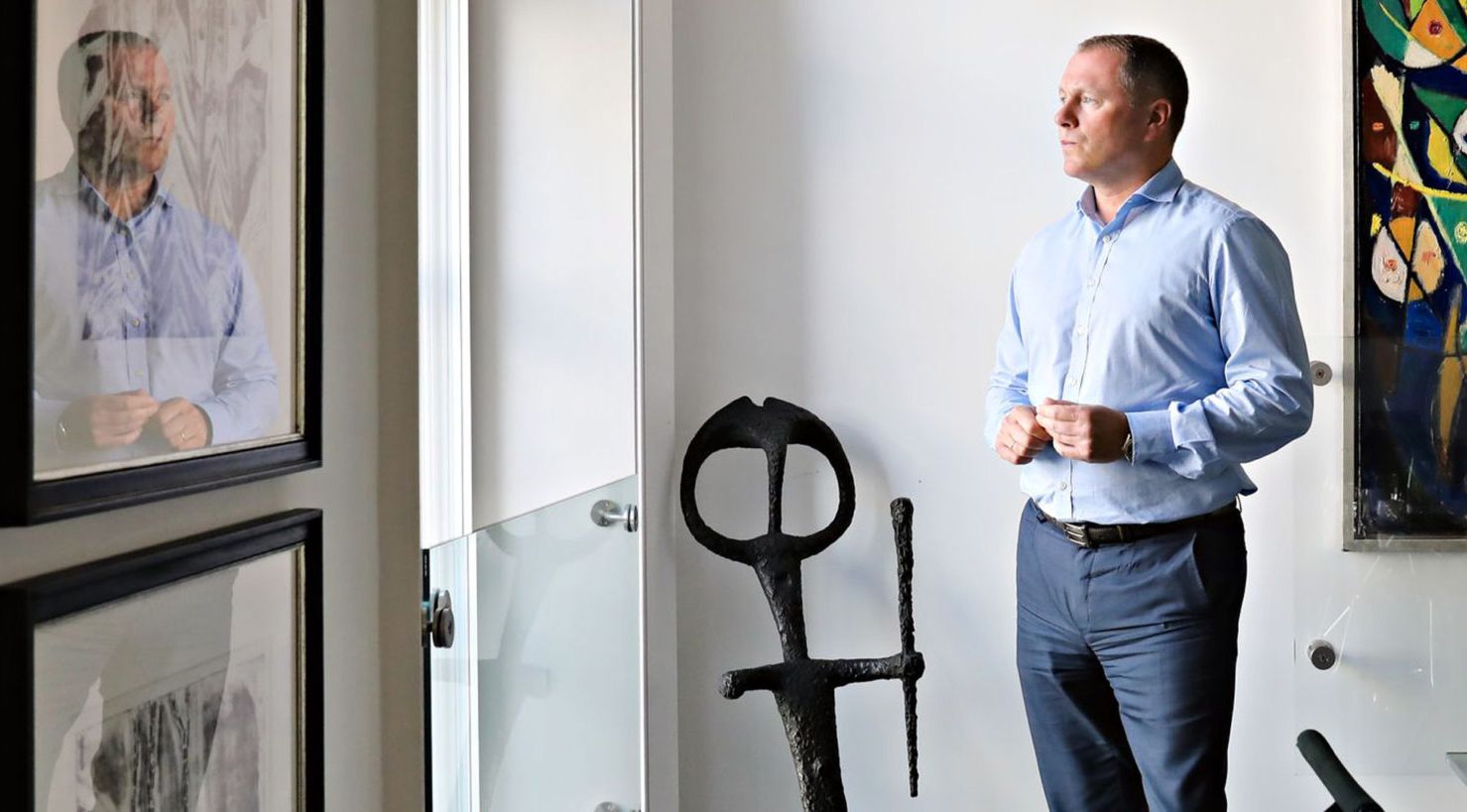
A Very Special Gift
In 2015, the collection had become so significant that Tangen no longer felt it belonged in private ownership.
“Art is for viewing and experiencing, and I felt that these were too important art-historical works for me to continue to own. Therefore, I decided to give the collection to my hometown. I hope with this that Kristiansand becomes a better and even more exciting place to live and grow up,”says Tangen, who was also the man behind the idea of converting the grain silo on the harbour in Kristiansand into a museum.
The AKO Art Foundation was established in 2016, to own the Tangen Collection and continue purchasing art.
The collection was already large and significant at that time, and since then it has almost quadrupled.
Today it comprises over 5,500 paintings, graphic works, sculptures, photographs, video works, drawings, and textiles.
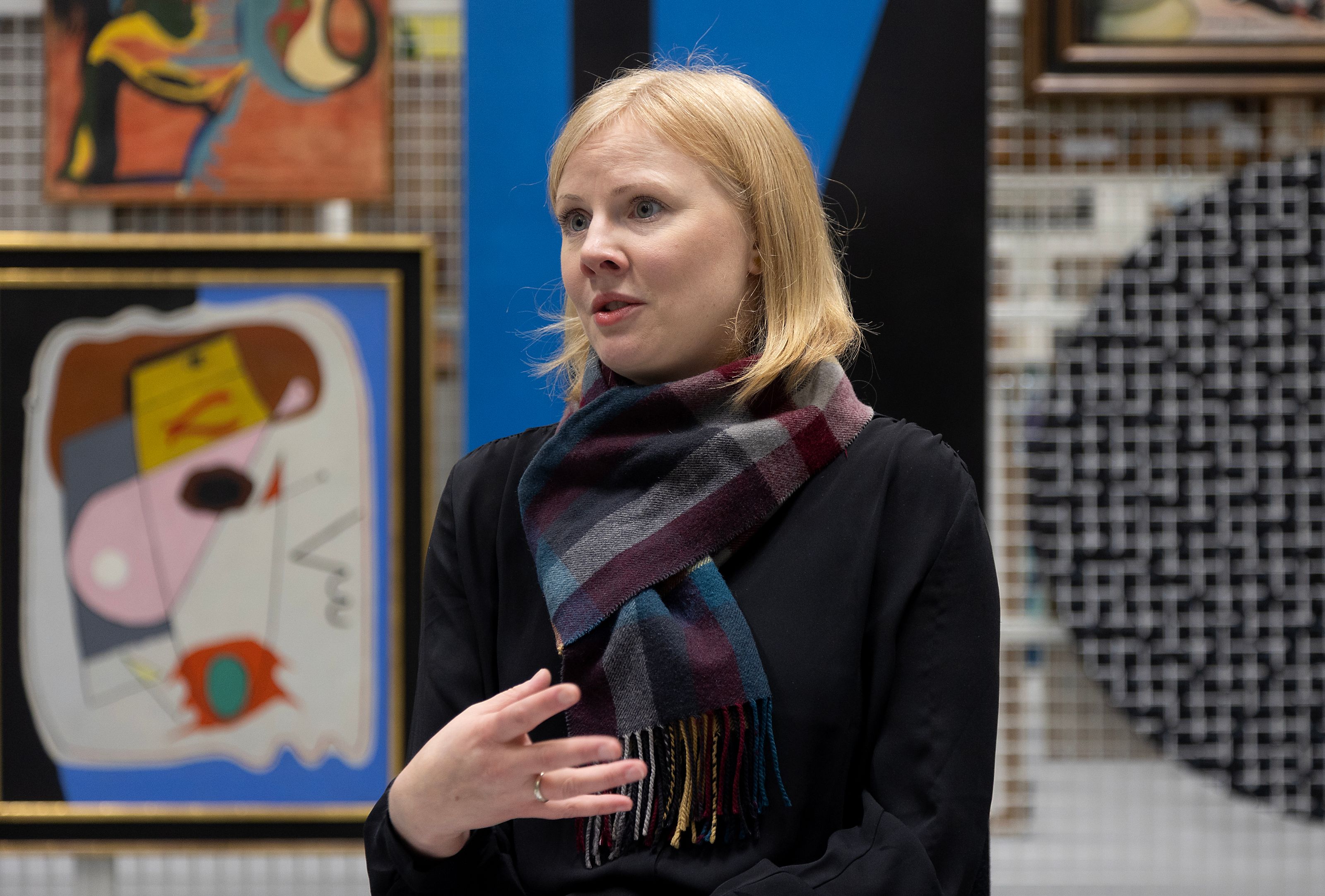
Into Kunstsilo
In 2020, Tangen was appointed director of Norges Bank Investment Management, more commonly known as the Oil Fund.
However, he was allowed to continue making purchases for the collection and has been involved in all acquisitions made.
A new chapter is now beginning.
Kunstsilo is completed, situated right in the vibrant cultural quarter by the sea in the centre of Kristiansand. Here, the Tangen Collection will become the core of a vast and extensive range of art and experiences.
Hanne Cecilie Gulstad is the curator at Kunstsiloand says that the collection will open many opportunities for the museum.
“The Tangen Collection encompasses stories of brave men and women who broke with the norms of visual arts. It shows artists who came together and formed a community - a united front to express themselves or develop something new,” she says.
“It also tells of those who studied together in the largest metropolises abroad, and who continued their contact when they returned to their home countries. It tells of those who lived in the city and loved its pulse, but also of those who experienced loneliness in the crowd and sought refuge within their own minds. It tells of those who found their favourite motifs in the Nordic landscape, where time stood still and nature remained untouched, and of those who sought a universal language accessible to all. It also includes those who expressed their gay orientation in a time when this was taboo and forbidden. What is exciting is being able to bring these stories to the fore and see how we react to them today. Do they contrast with our own time, or can they in a new way say something about society today?”
Gulstad believes that everyone who visits Kunstsilo will find something in the Tangen Collection that speaks to them.
“The collection is so rich and relevant in relation to our time, that it is possible to highlight various aspects that can evoke recognition, acknowledgement, fascination, and wonder. The fact that the collection also stands out in a Scandinavian context, will make it attractive to a wider audience, beyond our own city and region.”
